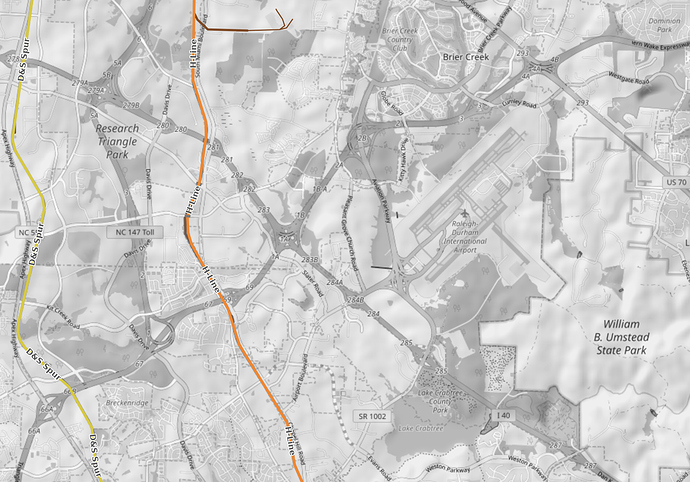This.
Early studies about commuter rail pretty much exactly said what @Thomas said (I’m having a hard time finding it because it was hidden in the fine print, but it’s definitely there). If you want to overturn that, you’ll need to come up with a counterexample that answers:
Specifically, these are the physical obstacles you’ll need to work with between the NCRR line (orange) and RDU:
Basically, stopping directly at RDU means you have to:
- go out of your way to build new rail (rather than taking advantage of existing tracks, which saves hundreds of millions of dollars)
- figure out where the rail will go
- keep private business owners, residents, and/or the NCDOT (because of I-40 and NC-540) from getting mad at you for taking their land as a part of your right-of-way
- turn a train into the RDU spur, stop at the airport (even for people who aren’t stopping there), turn back around, and somehow still get to places faster than by car
